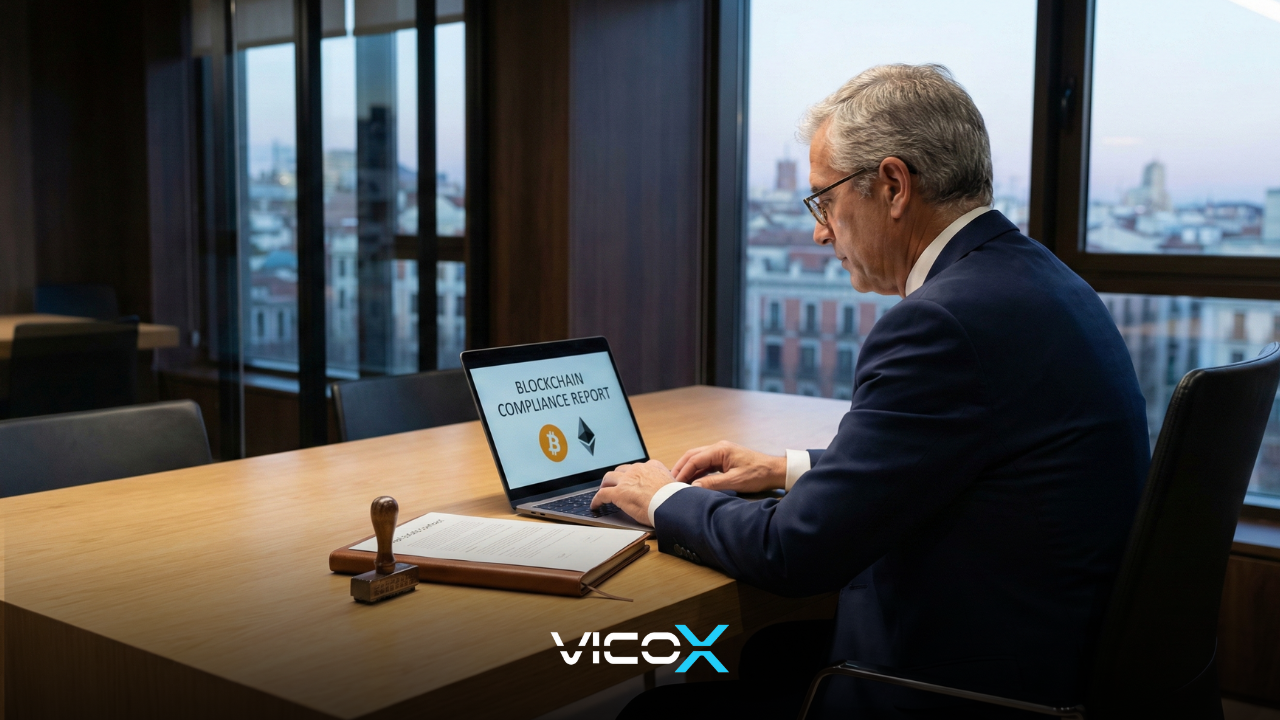Introduction
Portugal has long been one of Europe’s most attractive destinations for expats, entrepreneurs, and crypto investors. Its combination of lifestyle, safety, and tax incentives made it a global hotspot under the famous Non-Habitual Resident (NHR) regime.
However, as of 2024, the NHR is no longer available. It has been replaced by the Incentivo Fiscal à Investigação Científica e Inovação (IFIC), also known as NHR 2.0.
At Vicox Legal, we work with international investors and blockchain professionals relocating to Portugal. In this guide, we explain how NHR 2.0 works, who qualifies, and how crypto investors can still benefit from Portugal’s friendly tax system.
From NHR to IFIC — What Changed?
The old NHR regime (2009–2023) granted favorable tax treatment to new residents, including a 10-year exemption on most foreign income and a flat 20% tax on Portuguese income from high-value professions.
It became a magnet for digital nomads, retirees, and crypto holders. However, mounting EU pressure and domestic criticism over inequality led the Portuguese government to reform it.
The new system — the IFIC (Incentivo Fiscal à Investigação Científica e Inovação) — focuses on innovation, research, and technology.
Instead of a broad incentive for any foreigner with income, it rewards individuals who actively contribute to Portugal’s scientific and technological ecosystem.
Main Tax Advantages under NHR 2.0 (IFIC)
1. 20% Flat Income Tax
Under NHR 2.0, qualifying residents pay a flat 20% rate on Portuguese-source income derived from eligible activities in innovation, science, or R&D sectors.
This includes:
- Software development
- Artificial intelligence & blockchain technology
- Renewable energy
- Biotechnology & scientific research
- Digital innovation and data science
To qualify, you must either:
- Hold a university degree, or
- Prove recognized professional experience in a relevant field.
2. Exemptions on Foreign Income
One of the most attractive features of the old NHR remains in NHR 2.0: many foreign-sourced incomes may still be exempt from Portuguese taxation, provided they are taxed in the source country or protected by a double taxation treaty (DTT).
This includes:
- Dividends and interests from foreign companies
- Capital gains from non-Portuguese assets
- Certain types of royalties and professional income
👉 Tip: proper structuring is essential. With legal planning, your international income can remain effectively tax-free in Portugal.
3. Crypto Gains Still at 0% After One Year
Portugal continues to be one of the most crypto-friendly jurisdictions in Europe.
Under the 2023 tax law (which remains in effect under NHR 2.0):
- Crypto assets held for more than 12 months are tax-free when sold.
- Short-term gains (held less than 12 months) are taxed at 28%.
- Staking, mining, and NFT activity may be considered business income if carried out professionally.
As long as you maintain proper records, wallet documentation, and proof of holding, long-term investors enjoy 0% tax on crypto gains.
Step-by-Step: How to Qualify for NHR 2.0 (IFIC)
Step 1: Become a Tax Resident in Portugal
You are considered a tax resident if you:
- Spend more than 183 days in Portugal in any 12-month period, or
- Maintain a habitual home there.
Step 2: Ensure You Were Not a Tax Resident in Portugal in the Previous 5 Years
You must not have been registered as a Portuguese tax resident during the previous five years.
Step 3: Hold a Degree or Equivalent Experience
Applicants must prove higher education or relevant professional experience in an eligible sector (science, technology, research, innovation, etc.).
Step 4: Work or Collaborate with a Qualified Entity
To access the IFIC regime, you must work for, or collaborate with, a Portuguese company or institution engaged in research or innovation.
This may include:
- Tech startups
- R&D centers
- Universities or scientific entities
- Innovative companies in renewable energy, AI, or digital transformation
Step 5: Register and Apply
Submit your application through the Portal das Finanças (AT portal) once you are tax registered in Portugal.
Include your employment contract, degree, and supporting documents.
Step 6: Maintain Documentation
Keep copies of all:
- Employment or collaboration contracts
- Residence certificates
- Tax residency certificates from your previous country (to prove eligibility)
Legal and Tax Aspects to Consider
1. Legal Residence vs. Tax Residence
Many expats confuse residence permits (from SEF/AIMA) with tax residency (from the Tax Authority).
You must formalize both separately to avoid double taxation or loss of benefits.
2. Double Tax Treaties (DTTs)
Portugal has DTTs with most EU and OECD countries, including Spain, the UK, Germany, and the U.S.
These treaties help ensure that income is not taxed twice, and clarify where specific income types are reportable.
3. Reporting Crypto Assets
- Crypto holdings over €50,000 must be reported under anti-money laundering (AML) rules.
- From 2026, the EU DAC8 directive will require crypto exchanges to report user activity across borders.
👉 Vicox Legal assists clients in structuring their crypto portfolios and tax reporting to remain compliant while maximizing exemptions.
Case Study: Crypto Investor Relocating to the Algarve
Background:
David, a 38-year-old crypto investor from Spain, decided to relocate to Lagos (Algarve) after learning that Portugal’s NHR 2.0 still supports tech and innovation professionals.
Steps Taken:
- Registered as a tax resident after 200+ days in Portugal.
- Transferred his long-term crypto portfolio (held >2 years).
- Established a consulting business in “blockchain and digital innovation.”
- Applied under NHR 2.0 through the AT portal.
- Maintained proper accounting and crypto documentation.
Result:
- 0% tax on long-term crypto gains.
- 20% flat tax on Portuguese consulting income.
- No tax on dividends from his Spanish company (under DTT rules).
- Access to Portugal’s D7 residence visa and EU banking.
Who Loses Under NHR 2.0?
While crypto investors and tech professionals can still benefit, some groups lose out under the new model:
- Pensioners now pay standard progressive tax rates (up to 48%).
- Passive-income expats no longer enjoy blanket exemptions.
- Non-innovation workers may not qualify for the 20% flat rate.
NHR 2.0 focuses strictly on active contributors to innovation, not on retirees or purely financial investors.
Practical Tips for Crypto Investors
✅ Hold assets for at least 12 months to secure 0% gains.
✅ Avoid mixing personal and business wallets.
✅ Keep on-chain transaction records (for proof of holding).
✅ Use exchanges registered in the EU for compliance.
✅ Consult professional advisors for international structuring (Vicox Legal can assist).
Conclusion
For crypto investors, the combination of 0% long-term gains, a 20% flat tax on professional income, and a high quality of life makes Portugal still one of Europe’s best jurisdictions.
The end of Portugal’s classic NHR doesn’t mean the end of opportunities.
The IFIC (NHR 2.0) reflects a new direction, one that rewards innovation, entrepreneurship, and genuine economic contribution.
At Vicox Legal, we help international investors design compliant, efficient relocation strategies, from residence permits to tax optimization and crypto structuring.

Comparison chart: Old NHR vs NHR 2.0
Thinking of relocating to Portugal under NHR 2.0?
Thinking of relocating to Portugal under NHR 2.0?
Let’s build your strategy together.
👉 Contact Vicox Legal
Specialists in international taxation and crypto compliance.




